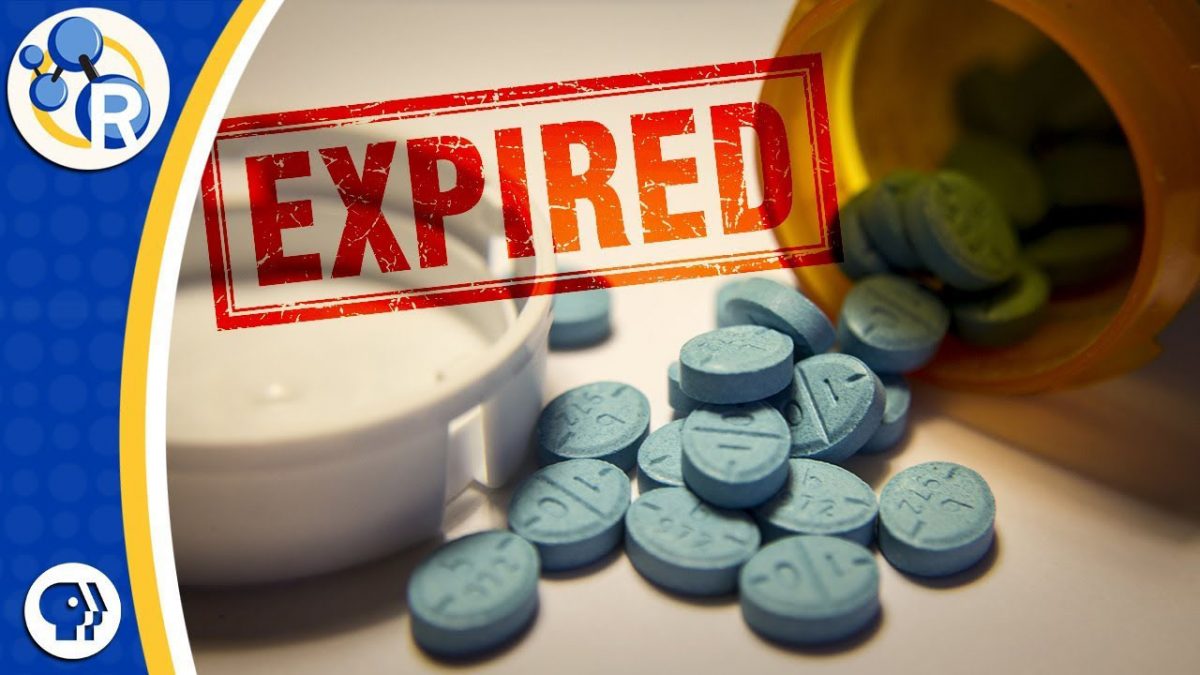Recent incidents suggest that Guyana has had to deal with incidents of both ‘importation’ of expired drugs and their use of such drugs in the public health system. Reportedly, the importation of expired drugs is linked to corrupt practices involving handlers of drugs-importation at the level of the state and businessmen seeking to maximise their earnings. The ‘importation’ of expired drugs and their infusion into the national public health system is also a function of monitoring-related weaknesses in the system, not least at the level of the Government Analyst Food & Drugs Department (GA&FDD). One of the GA&FDD’s weaknesses is linked to its human resource limitations while another is believed to be the overriding of the agency’s authority by state functionaries.

While this World Health Organization (WHO) article was written in 2016, its contents address some of the challenges associated with the Guyana situation not only in terms of the impact on the national health delivery system but also in terms of the dangers posed by the misapplication of procedures in the disposal of the considerable quantities of these expired drugs which are frequently never used by the receiving countries.
It has been edited for length without compromising its content.
Introduction
In many low-income countries governments’ health budgets are insufficient to finance adequate access to pharmaceuticals. Accordingly, many health systems rely, in large measure, on external drug donations from high-income countries and development agencies.
Donated pharmaceuticals often mismatch those needed. International guidelines require that drug donations be responsive to recipient countries’ needs and that the drugs involved have a shelf-life of at least one year on arrival. However, drugs that are already past their expiry dates have often been dumped in poor countries while some donations are large and unwanted. Stockpiles of expired pharmaceuticals may also build up as a result of poor forecasts of future demand.
In most low- and middle-income countries, the supply of pharmaceuticals is centralised and one state agency is entrusted with the procurement, storage, and distribution of pharmaceuticals. The network of public health facilities in any given country is often expansive and complex so that it is impossible for a single agency to respond effectively to the unique demands of each client. Dysfunction in the management of a pharmaceutical supply chain can promote the accumulation of large quantities of expired pharmaceuticals in central stores and health facilities. In the absence of the timely and safe disposal of expired pharmaceuticals, these may either be dumped indiscriminately, creating the risk of environmental pollution, or else, repackaged for the counterfeit market.
Pharmaceutical pollution
The control of pharmaceutical pollution of the environment in low- and middle-income countries needs to be based not only on the safe disposal of expired drugs but also on the optimisation of pharmaceutical use before expiry. New pharmaceutical expiries might be curtailed by: (i) strengthening the management of pharmaceutical supply chains in the public sector; (ii) reducing the workload at central medical stores, through liberalisation and reimbursement schemes; (iii) improving the regulation of drug donation; and (iv)investigating the salvage of drugs that are officially expired but still usefully active, through re-analysis and possible shelf-life extension. There should be better supervision of stockpiles of expired pharmaceuticals and the disposal of such stockpiles needs to be improved and better regulated. The enforcement of any existing national and international regulations on the safe disposal of pharmaceuticals – e.g. by incineration at so-called ultra-high temperatures – needs to be strengthened. Every country needs to have such regulations.
Management systems
Robust management systems for the supply of pharmaceuticals, in which re-order quantities are informed by reliable consumption data and demand forecasts, are essential in minimising the amounts of pharmaceuticals that remain unused when they reach their expiry dates. In many low-income countries, it may be wise to invest in both robust information systems for logistics management, to track consumption, and the development of skilled human resources capable of optimising forecasts of future demand. The use of computerised inventory management can greatly enhance data retrieval and analysis.
Central stores
To enhance the performance of publicly funded pharmaceutical supply, poor countries need to transfer some of the duties to the staff at community pharmacies. At peripheral health facilities where the capacity to track consumption and forecast demand is often inadequate, the delegation of prescription services to community pharmacies – wherever available – could again help to reduce the amounts of pharmaceuticals that remain unused when they reach their expiry dates.
Drug donations
To suppress the unregulated export – from high-income countries to lower-income countries – of pharmaceuticals coming towards the end of their shelf-lives and other nonconforming medications, countries need to strengthen the enforcement of national policies and WHO guidelines on drug donations. According to WHO, any low- or middle-income country considering the receipt of a proposed drug donation should ensure that: (i) only solicited donations are allowed entry; (ii) any donated drug is approved for use in the recipient country and congruent with the relevant national policies and regulations; (iii) donations are in accordance with a plan mutually agreed upon by both the recipient and the donor; (iv) the donation is on the essential medicines list of the recipient country; and (v) the donation meets the quality standards of the donor and the recipient country. Ideally, the presentation of any donated medicine should match that already used in the recipient country, the labelling should be in a language that is widely understood in the recipient country and any donations of recycled medicines should be denied entry. Many low- and middle-income countries have designed their own policies, on the receipt of drug donations, which conform to WHO guidelines.
Pharmaceutical salvage
Manufacturers generally assign pharmaceuticals shelf-lives of one to five years. Some pharmaceuticals are held in reserve for use in an emergency situation. This can result in large stockpiles of expired pharmaceuticals. In poor countries, it should be possible to extend the useful lives of medications that pass tests for efficacy and safety. However, such shelf-life extension or drug salvage is only feasible where there is sufficient capacity for pharmaceutical analysis.
Disposal
If unsafe disposal and leaching of pharmaceuticals into soil and water bodies are to be avoided, many poor countries will have to strengthen the enforcement of national policies and WHO guidelines on pharmaceutical disposal. Within the WHO guidelines, it is recommended that: (i) the user unit should obtain approval for drug disposal from the appropriate authority, such as the national medicines regulatory agency; (ii) personnel at the disposal site should wear protective gear; (iii) expired pharmaceuticals are sorted into their different categories to ensure the appropriate disposal method is used for each category; and (iv) appropriate security is ensured during the disposal of controlled pharmaceuticals.
Accountability
A potentially effective tool to prevent the misuse and improper disposal of expired pharmaceuticals is the enforcement of routine accountability for pharmaceuticals. For optimal effectiveness, low- and middle-income countries should make user accountability for expired pharmaceuticals part of the routine accountability regimes for their health sectors.
As expired pharmaceuticals pose threats to both health systems and environments, low- and middle-income countries need to suppress the accumulation of such pharmaceuticals and their slippage into the environment or counterfeit drug markets. Critically, such countries need to strengthen the management of their pharmaceutical supply chains and the associated accountability and regulatory mechanisms.






